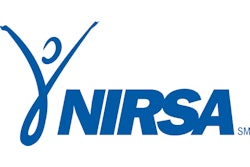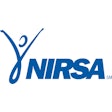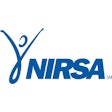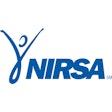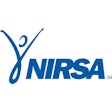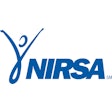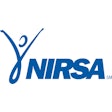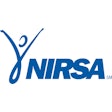
You may have heard or read about the new Certified Student Affairs Educator-Campus Recreation (CSAEd-CR™) credential. Designed exclusively for mid- and senior-level campus rec professionals, as well as for student affairs educators looking to transition into campus recreation, the certification is intended to help individuals advance their careers while also gaining a greater understanding of the work and challenges of their peers in other campus life departments.
The certification began as a pilot program in 2022 and has come a long way in a short time.
“There was no study guide back then,” says Jonathan Stahl, associate director for programs and staff development in the recreation department at Washington State University, who has nearly 20 years of experience in the field. “There were no sample tests, just a list of the different domains and general concepts we needed to be familiar with.”
“A lot of the preparation was on your own: Read this, look up that,” adds Tricia Losavio, associate dean of students for health and wellness initiatives at the University of Texas at Dallas and another early CSAEd-CR certificate recipient. “In my feedback about the program, I said ‘Y’all need to make a boot camp or provide some sort of resource opportunity for people, so they’re not going into this process 100% blind.’ ”
NIRSA listened to this feedback and tapped Losavio and Patsy Davis, associate director of campus recreation at Augusta (Ga.) University and a fellow CSAEd-CR recipient, to co-write the curriculum for a new three-part webinar series designed to help NIRSA members study for the certification exam.
Hosted by Losavio and Davis, “CSAEd-CR Exam Prep Bootcamp” dives into specific competency areas that test-takers will need to understand in order to prepare for the exam. The boot camp also provides study resources that others who received certification found useful, as well as access to an exclusive NIRSA Connect community. In NIRSA Connect, participants can connect with other certification-seeking peers, form study groups and share new resources.
“In short, we’re demystifying the test,” Losavio says.
Certification carries weight
The launch of the new professional certification marked the culmination of a multiyear development process. This process was led by the Higher Education Consortium for Student Affairs Certification — an organization recently established collaboratively by NIRSA along with ACUI (formerly the Association of College Unions International), the Association of College and University Housing Officers – International (ACUHO-I), the Association of Fraternity/Sorority Advisors (AFA), the Association for Student Conduct Administration (ASCA), the National Association for Campus Activities (NACA) and NASPA – Student Affairs Administrators in Higher Education. Because of these vast partnerships, other specialty credentials beyond campus recreation can be earned in the functional areas of campus activities, campus housing and residential life, college unions, fraternity and sorority life, and student conduct administration.
Nearly two dozen midlevel or higher professionals were among the first cohort to earn the CSAEd-CR certification, which is defined on the program’s website as a “specialty credential for demonstrating continuous learning, competency and knowledge in established domains which are essential to success in the complex and evolving landscape of campus recreation work.”
Given that the program is no longer in the pilot phase, NIRSA’s boot camp is seen as a major step toward increasing participation. Each webinar focuses on a core domain: leadership, facility and crisis management, and social justice and inclusion/talent management. Other core domains covered in the certification training are foundations of the profession; student learning, development and success; assessment and evaluation; and financial and facility management.
“Now that people can better prepare for the exam, I think it might be more enticing for them to pursue this opportunity,” Stahl says. “Why not take advantage of that?”
“If members of your staff are looking to expand their options, this certification offers something different, because it is sponsored by multiple organizations and carries more weight than something from just one organization,” Losavio adds, explaining how the campus recreation certification will help professionals in other areas of student affairs, too. “If you’re a professional who has spent most of your career in student affairs and want to go work in campus rec, I think getting certified would add a lot of weight to your application. It would show that — even though you may have spent your time in housing, let’s say — you do have an understanding of what recreation is all about on campus.”
‘More confident and competent’
NIRSA officials say more than 40 members of the association from 35 colleges and universities have received the CSAEd-CR certification since its inception. Those numbers will increase as more NIRSA members learn about the program, participate in the boot camp and recognize how the certification can impact their careers.
“I don’t think having this credential suddenly pops a certain ceiling, but it wasn’t developed as such,” Stahl says. “What it does is provide an objective assessment of what my strengths are and where there is room for growth.”
For Losavio, earning the certification has helped her adjust to her new role after 19 years as director of recreation at the University of Texas at Dallas.
“It made me focus more of my attention on developing areas in which I wasn’t as strong as I should be, especially in staff development. Now I’m better able to provide my staff a broader base as they move forward in their professional journey,” she says. “Also, when I was a director, I had limited direct interactions with students. But in my new role, I’m responsible for the behavior assessment and intervention team on our campus. I meet with a lot of students who have a variety of needs, and being able to refer back to some of the resources from the course and the boot camp has helped.”
Stahl believes the certification could provide “an edge in career advancement” and one day be listed as a preferred qualification in job descriptions.
“I have always felt like a student affairs professional,” he says. “I did my Master’s in higher education and found my way to campus rec. That’s my true passion and where I’ve spent the last 16 years. It’s been great, but I just love the fact that this is a student affairs certification at its core, and then there are the connections to our specialty areas. I think that’s particularly useful for people like me, who are midlevel professionals. Plus, it provides a little more motivation to maintain the certification via continuing education credits.”
For Stahl, who now includes the colorful CSAEd-CR logo in his email signature, certification has been personally gratifying.
“There’s a lot to be said for affirming that you know what you know,” he says, adding that his current title represents a recent promotion from his previous role as Washington State’s assistant director of adventure programs and experiential learning. “Having this certification makes me a little more confident in my ability to do my job — which, in turn, is helping me do my job better.”





















